Going with the Grain
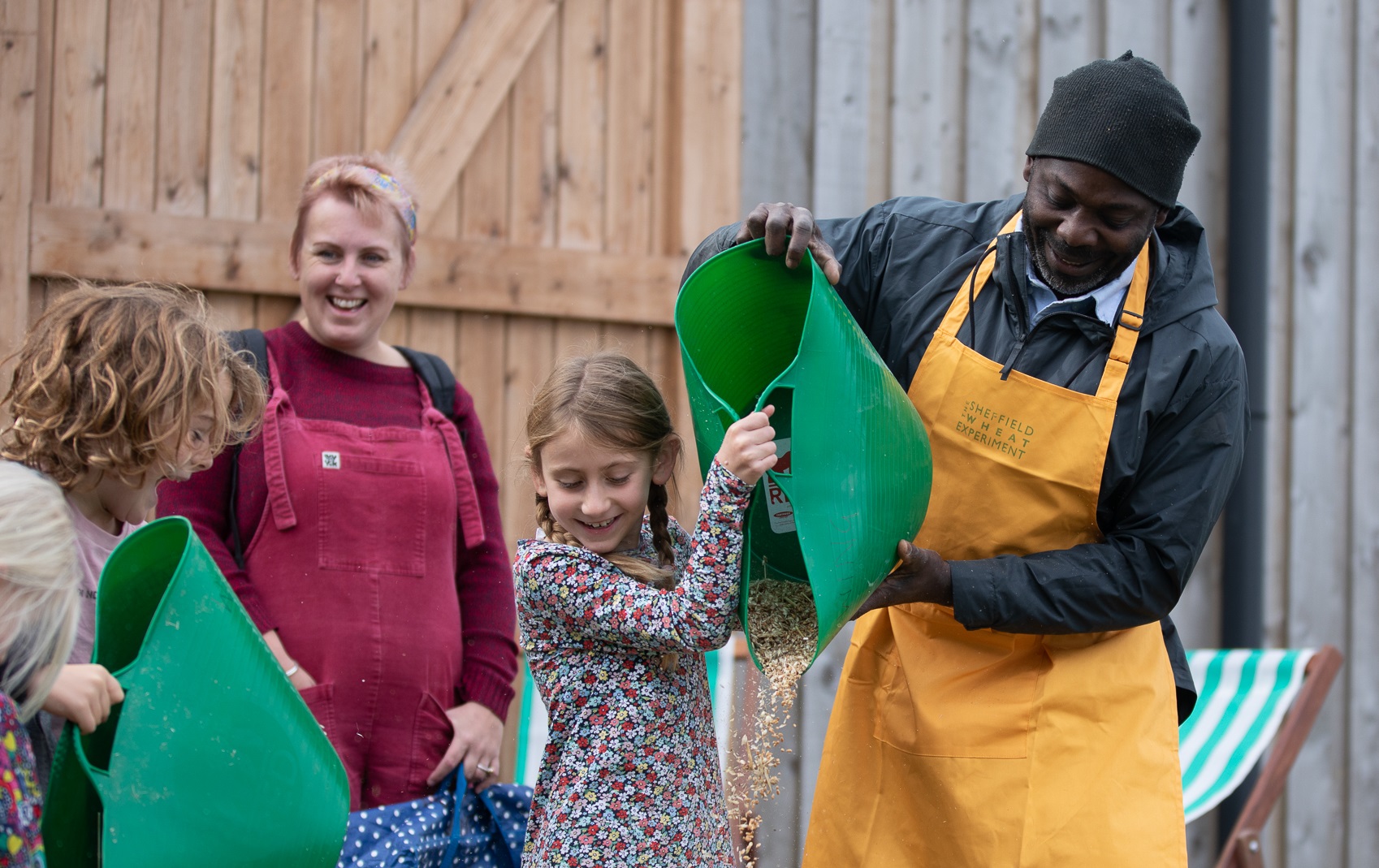
3 March 2023
8 minute read
Recent years have seen rising interest in community-scale grain growing. Part food security experiments, part community art projects, part research initiatives that could just turn out to be vital to our food future, Transition Together’s Rob Hopkins meets some community grain growing pioneers and finds out why some people are flailing, winnowing and stooking their way back to community resilience.
Talk to many people at the heart of the emerging local grains movement about their first inspiration and they’ll point you to Andrew Forbes and his ‘Brockwell Bake’ project in London. It started in 2008 as a competition for people baking ‘real’ bread, but quickly expanded to include growing heritage wheat varieties on allotments, school and community gardens, and also with farmers close to London. They also mill what they grow and run baking workshops across London.
One of those inspired by the Brockwell project was Toby Hardwick, a member of Transition New Mills on the edge of the Pennines. The original mill in the town was build in 1391 for corn, followed later by cotton mills, weaving mills and printworks. Every September, the town hosts a festival, combining concerts, talks, exhibitions and an evening lantern procession along the river.
As one of the organisers, Toby, proposed staging Flora Thompson’s ‘Lark Rise to Candleford’ in the apt setting of a field of wheat being harvested. After struggling to find a field, he began exploring a more ‘patchwork’ approach, with lots of small growing plots in and around the town. He discovered Sustain’s guide ‘Bake Your Lawn’, which gave him lots of ideas and inspiration for a bottom-up grain growing project. But then, with a director lined up, rehearsal space booked, costumes and props ready …. Covid hit.
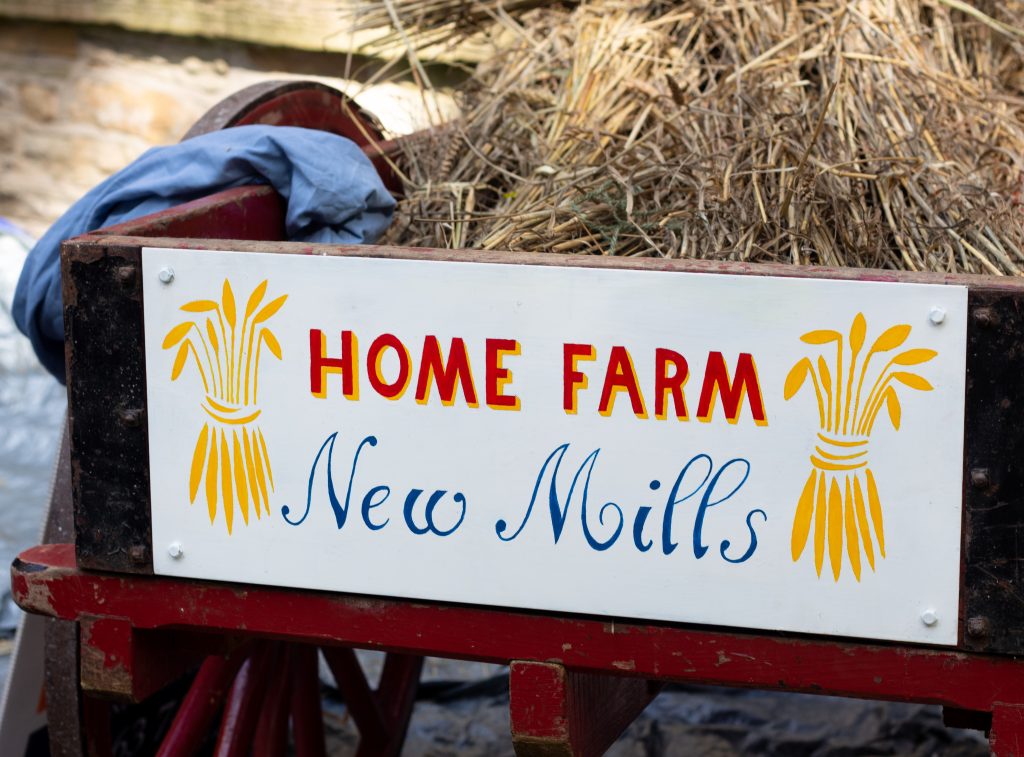
Nonetheless, ‘Home Farm’ was born, inviting local people to grow heritage wheat varieties on one or two square metres of ground. The aim was to use the project to encourage people to support local shops and to create new community rituals around wheat growing. Packets of seeds of landrace varieties – genetically distinct variations that evolve to suit the conditions of a local area – were available for people to pick up free from local shops. There were three different varieties, and 200 people got involved, including one local farmer. People shared their experiences and growing tips through a very active Facebook page.
With Covid, opportunities to meet in person were limited. Seed funding from Transition Bounce Forward enabled them to commission four artists to each make a piece in response to the idea of ‘Home Farm’. These were displayed in shop fronts during the Festival. That first harvest year, people brought their wheat, which had been cut and ‘stooked’ (stacked standing up to allow air drying) to a New Mills car park, where they worked together to thresh and winnow the grains, and mill them into flour, sending people home with some flour and a sourdough starter culture. After months of Covid and lockdowns, “it was such a novelty to meet and to share together” Toby told me, “it was the nicest day of the whole project”.
Initially, the project was only meant to be a one year thing, Toby adds. “It was playful, about playing at being farmers. But a year in I realised ‘hang on, this is all about building a local food system’”. Meanwhile, the war in Ukraine brought the world’s dependence on Ukrainian wheat increasingly to peoples’ minds.
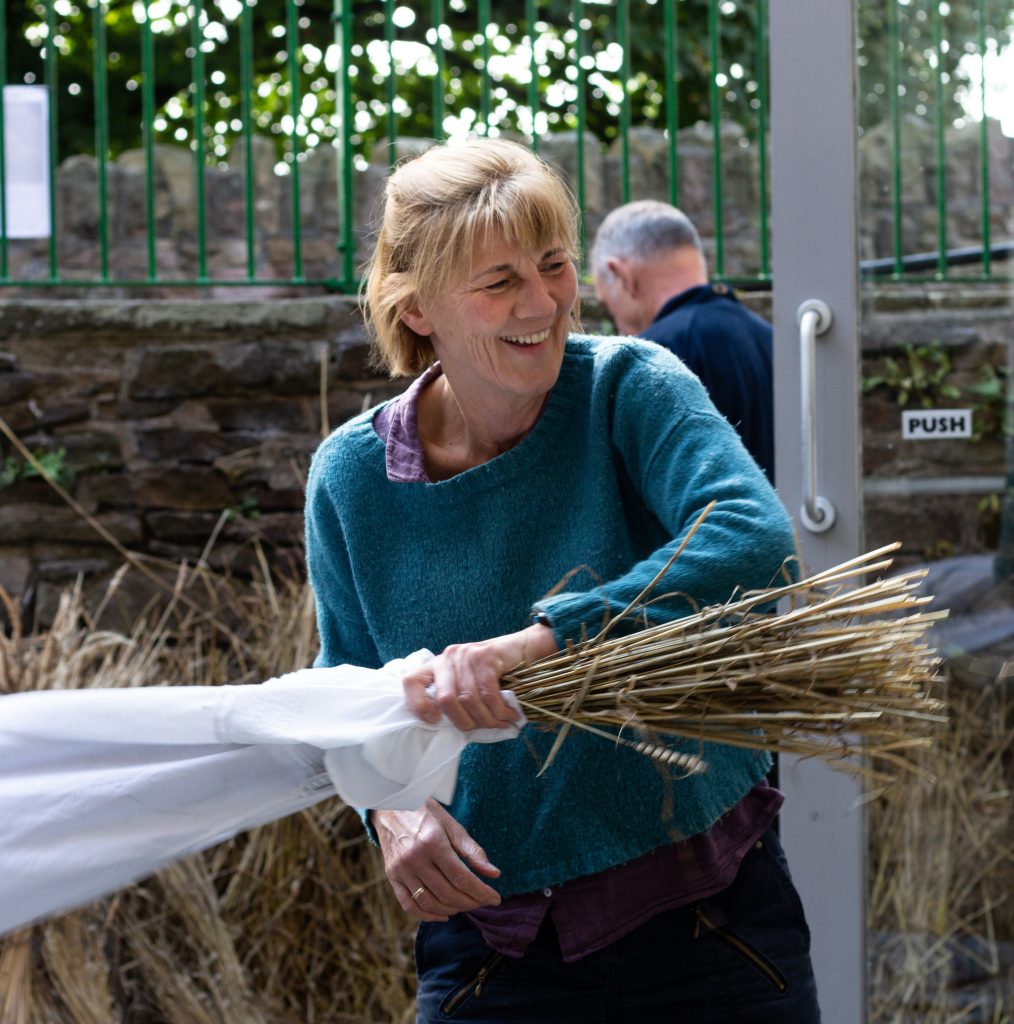
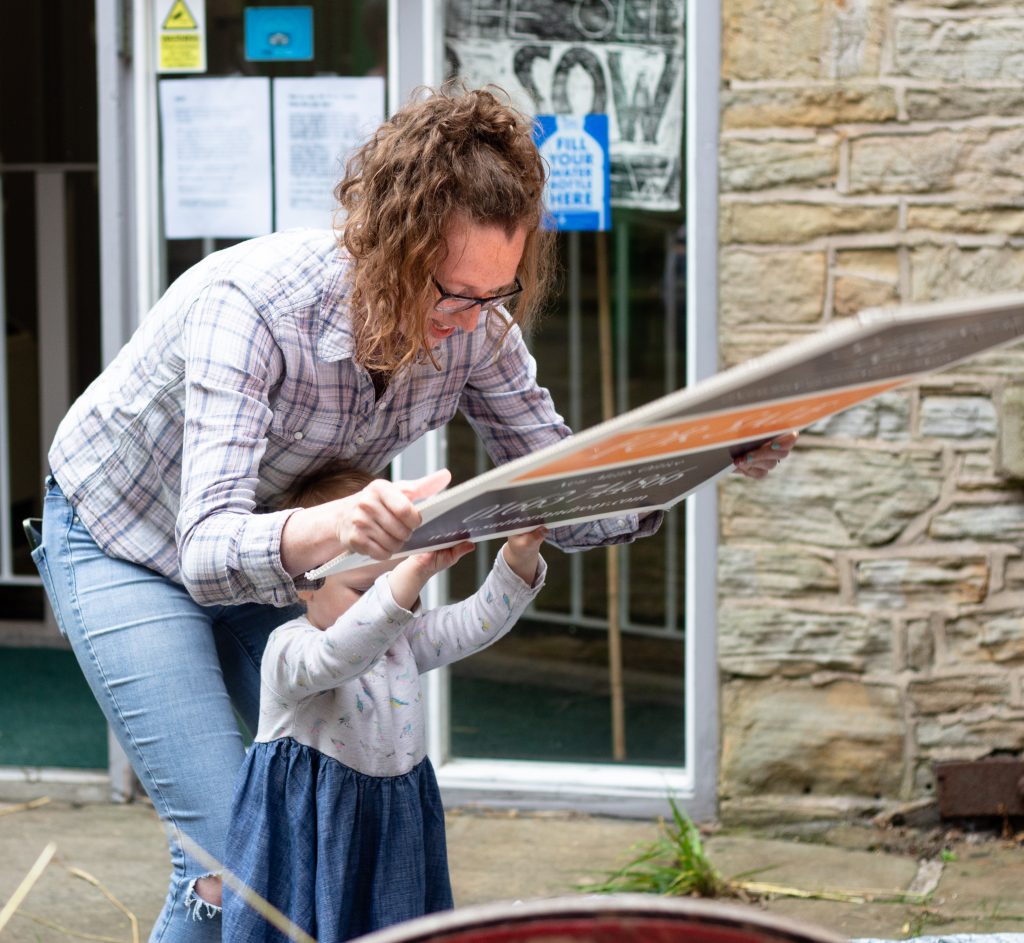
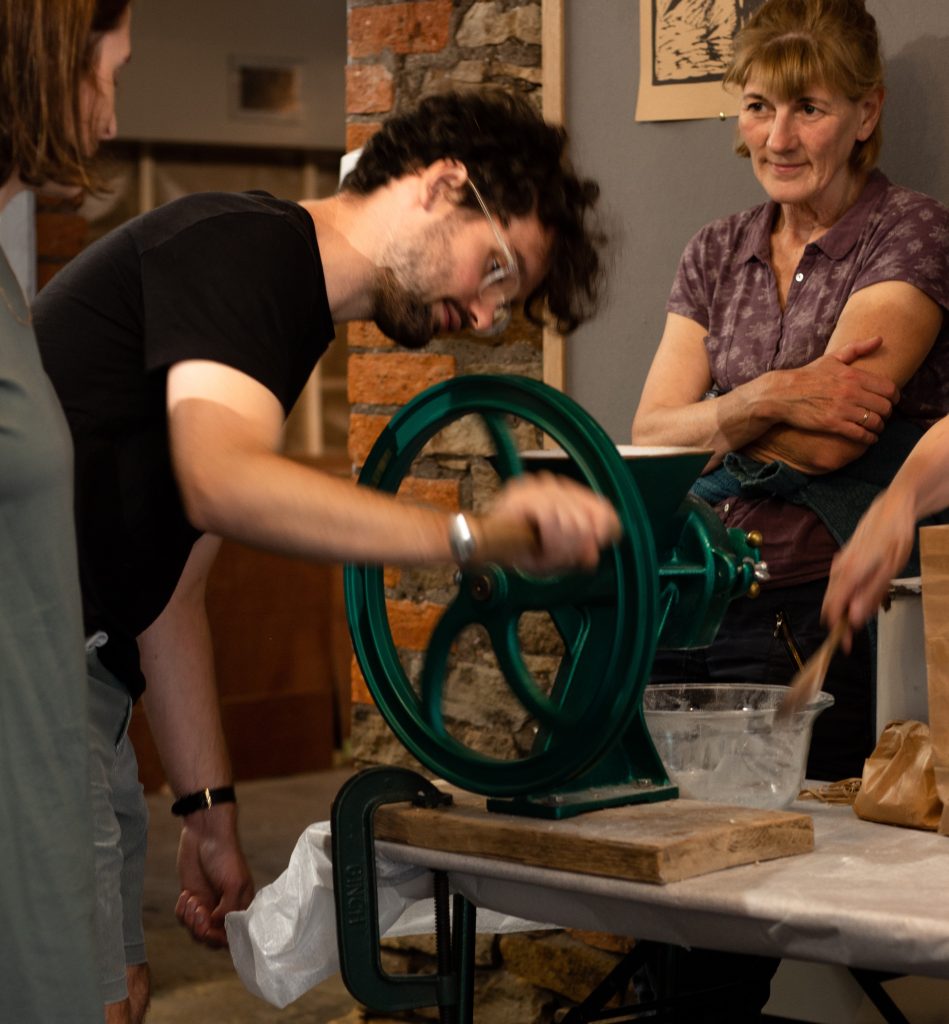
The second year’s harvest was a bit more mechanised, using some machines Toby has collected to speed up the process (on Zoom, he shows me a water-powered mill he is working on for the 2023 harvest). Harvest Day 2022 took place in Transition group’s new Rock Mill Centre community hub.
Since the project began it has also catalysed a local wheat beer, as well as ‘Wild Flaxen Heart’ a group working in parallel to grow flax for a ‘Home Farm tweed’. While finding enough volunteers remains a perennial challenge, the seeds for the 2023 harvest are already in the ground, mostly winter varieties sown in September for harvesting the following year.
Materials and support for projects like Home Farm are growing as fast as the grains do. UK Grain Lab is an annual gathering of farmers, millers, plant breeders, bakers, cooks, scientists and academics promoting non-commodity grains in the UK. Farmer Martin Wolfe, who died in 2019, did amazing work at Wakelyns Farm developing YQ, a ‘population wheat’ which aims to bring genetic diversity back into our wheat supply (‘YQ’ stands for ‘yield and quality’). Andrew Wheatley’s ‘Scotland the Bread’ project is doing amazing work north of the border to create a new culture around grain production and resilience. Then there’s the Yorkshire Grain Alliance, the work of pioneering baker Kimberley Bell of Small Food Bakery in Nottingham, and also the Grain.Gather.Grow project in Liverpool. Meanwhile local grain networks that are sprouting up around the UK, as Mahala le May gathers here.
About an hour east of New Mills, in Sheffield, you’ll find the Sheffield Wheat Experiment (SWE). While superficially similar in many ways to Home Farm, the Sheffield project has a number of key differences. The experiment emerged out of lockdown, when flour disappeared from supermarket shelves. Co-founder Ruth Levene wrote in the project’s ‘The Sheffield Wheatly’ newsheet:
“The experiment ‘working’, for some, is seeing greater social complexity arising from the regeneration of absent food culture. For some it’s about being part of something bigger. For others, it’s growing and harvesting wheat. For me it’s about all those things and more”
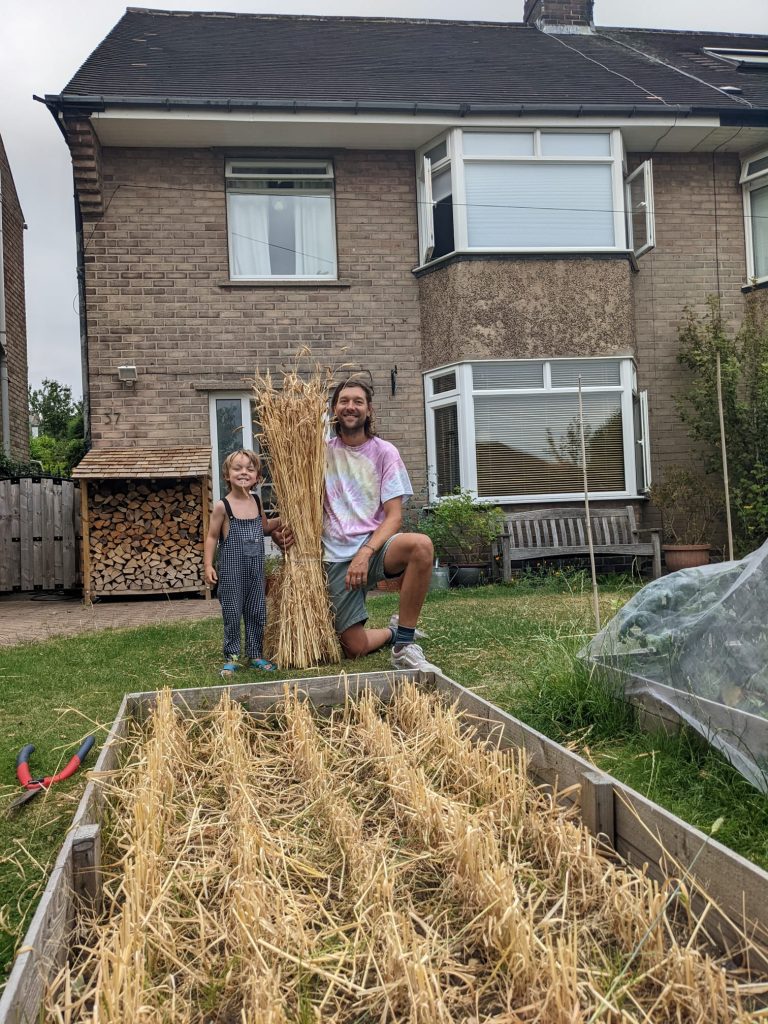
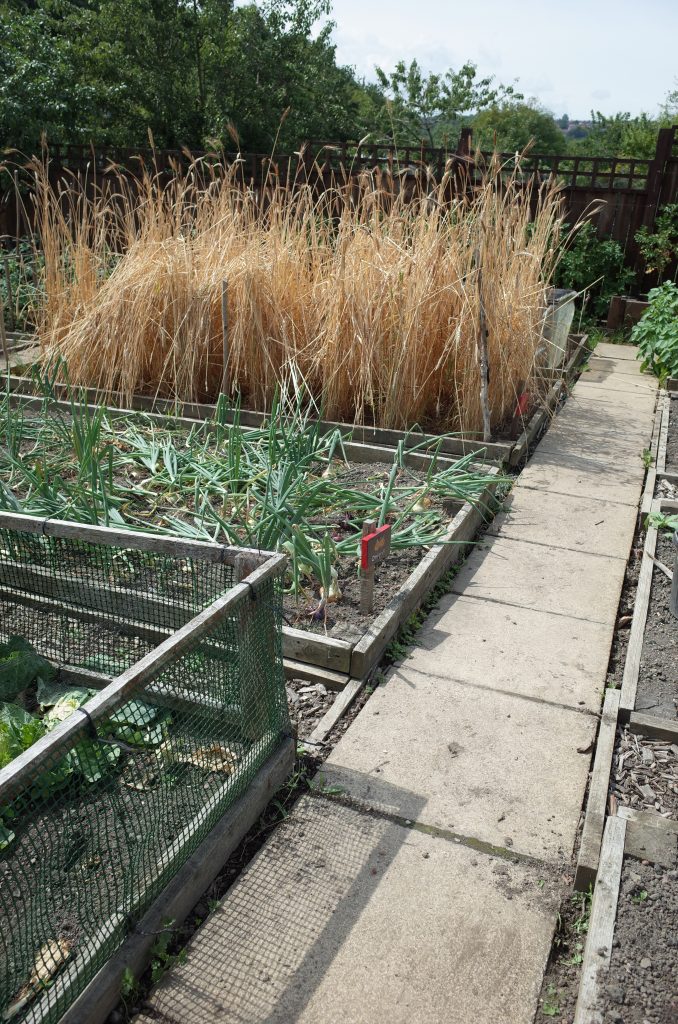
Ruth’s background is as an artist, and she was part of the team behind the seminal ‘A Field of Wheat’ arts project which centred around, as you might imagine, the growing of a field of wheat. One of Ruth’s reasons for designing the Sheffield Wheat Experiment was, as she told me, “an interest in hidden infrastructure and their power to create open invitations to imagine and build new infrastructures and new relationships”. Their particular focus is the creation of a Sheffield ‘landrace’ which, through repeated growing and re-sowing in the soils and climate of Sheffield, becomes uniquely suited to that place, what Ruth calls ‘a seed of people and place’.
In October 2020, Ruth created a poster looking for growers – it was shared rapidly and 210 people signed up in the first 4 days. People were then given enough seeds for a small patch of grain and an excellent Growing Guide. The first threshing day in 2021 was very hands on, as the wheat people brought along had to be flailed and winnowed; there was a lot of hand processing, pretty much seed by seed, producing enough for 100 small bags of flour. The second year they harvested 100kg of wheat. Some of this was milled and a local baker turned it into scones, biscuits and bread.
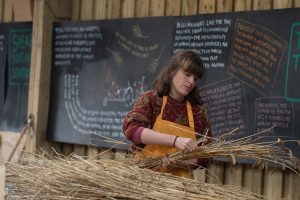
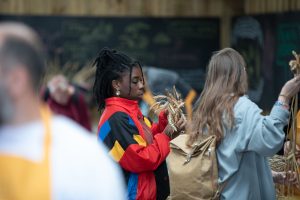
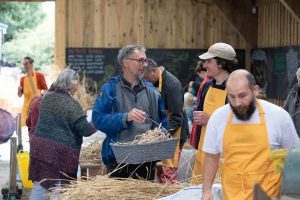
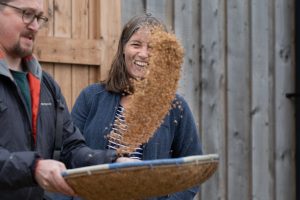
But in the background, the most vital work is keeping the bulk of the seeds for re-sowing the next year, as the landrace is developed year on year. Around this a beautiful diversity of initiatives has emerged. As in New Mills there’s a wheat beer called ‘Growers’ Union’, and there are now local farmers growing larger scale plots. These offer greater potential for really learning how to create a good skillset around harvesting, and to really understand the difficulties that grain growing entails, learning to deal with rats, birds, wind, and how to most effectively harvest by hand. There are now 1000 people involved in Sheffield, spread over 254 different growing sites.
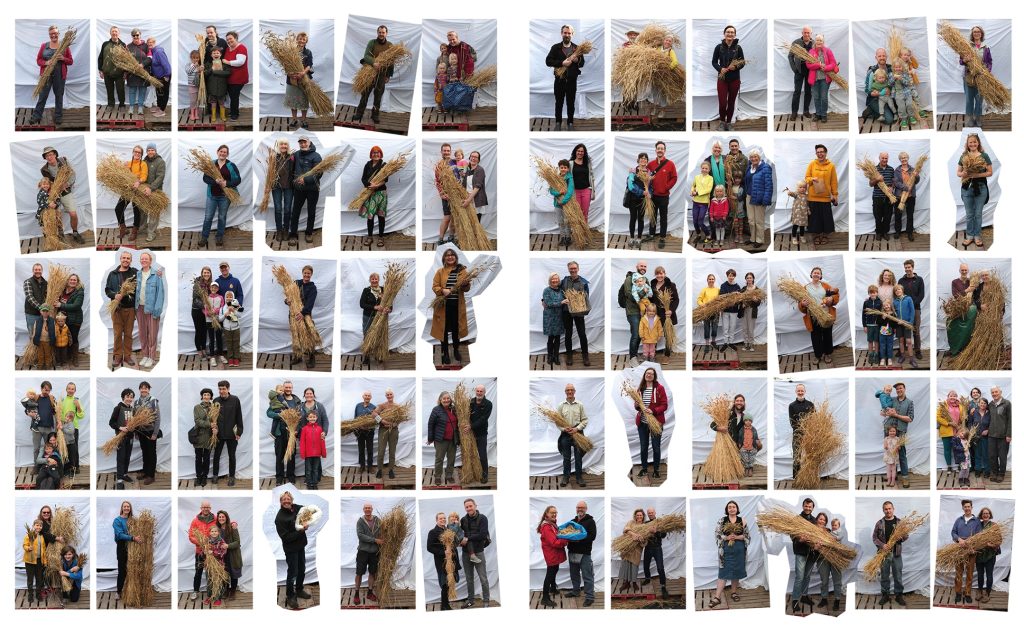
I asked Ruth what her advice would be for people thinking to start something similar. She told me “get some seed and get it in the ground. Then once it’s in and started growing, you’ll have to figure the rest out!” She added: “You will get a lot of people saying ‘how many loaves of bread will I get from this 2 square metre plot?’ That’s not the right question. This is about seeing Sheffield as a farm, and about bulking up the landrace seed reserves”.
Ruth adds “We sometimes dream that somehow ‘we’ can grow a few large fields of wheat, have somewhere to store and dry it, have the tools and capacity to process it, a miller to mill it, lots of bakers to bake with it and the good Sheffield folk willing to try or buy it. But in the meantime all we can do is plant the seed, experiment and see what happens”. As can you, as can we all. Happy sowing.
Find out more
Transition New Mills Home Farm report
Read our recent article on how communities are building food resilience in the face of the cost of living crisis.